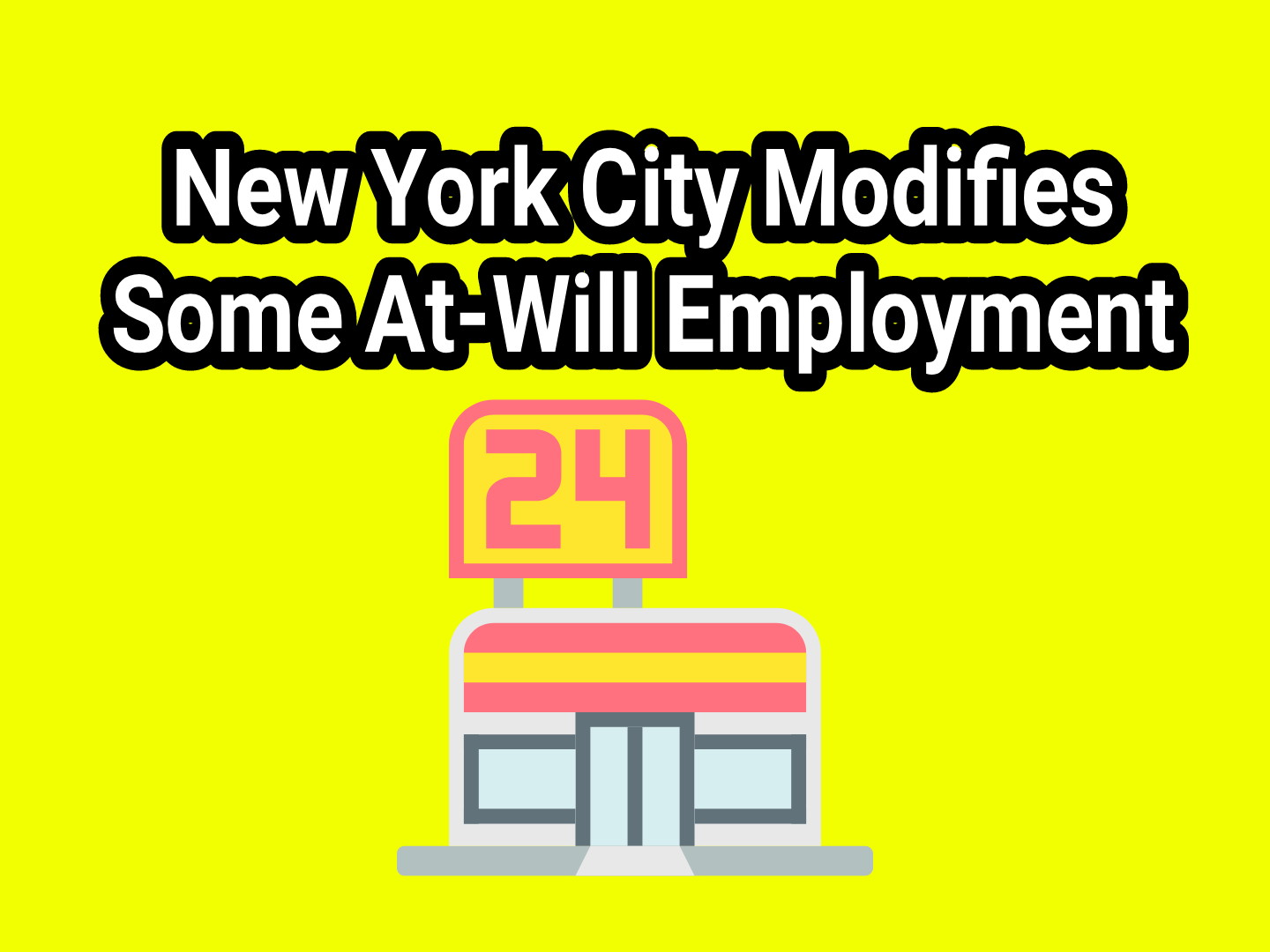- Free Consultation: (631) 352-0050 Tap Here to Call Us
New York City Requires Just Cause to Terminate Fast Food Workers

New York State is generally considered an at-will employment state. Employment at-will means that employers can fire employees for any reason or no reason at all, unless the termination would be a violation of law. Examples of violations of law include unlawful discrimination or retaliation.
Other exceptions to at-will employment in New York include circumstances where the employee has an employment contract which alters the employment at-will default rule. Employees, typically high ranking executives or professionals such as doctors and lawyers, may have individual employment contracts. Other employees such as laborers, may have union contracts, known as collective bargaining agreements. Additionally, government employees may have job protection under the Civil Service Laws.
But, most employees in New York are at-will and have no job protection.
Seeking to expand the class of New York employees who have job protections and who will no longer be at-will, New York City has expanded the Fair Workweek Law to require that fast food workers be fired only for “just cause.” Today’s Long Island employment law blog discusses this law.
New York City’s expansion of the Fair Workweek Law covers fast food workers who work for fast food restaurant chains with 30 or more restaurants across the country. The law requires that employers provide an initial 30 day period of probation. After the probation period, the employer may terminate the employee, reduce the employee’s work hours by 15%, or indefinitely suspend the employee, only for just cause.
The definition of just cause is the employee is unable to satisfactorily perform the job duties or where there is misconduct which is demonstrably and materially harmful to the employer’s business interests. Before discharging the employee, the employer must provide five days notice indicating the precise reason for the termination. The factors used to determine just cause are:
- Did the employee know or should the employee have known about the employer’s policy, rule, or practice used as the basis for discipline or discharge;
- Did the employer adequately train the employee;
- Did the employer fairly, reasonably, and consistently use the policy or rule to discipline the employee;
- Did the employer investigate the misconduct or inadequate job performance in a fair and objective way;
- Did the employee in fact violate a rule or policy which is the basis of the discipline.
The law further requires that employers use a progressive discipline model which includes a range of discipline, termination being the most serious level of discipline which should be reserved the most egregious violations.
The law does not prohibit employers from laying off workers due to economic reasons, but it imposes some requirements which businesses must follow. For example, employers must have a bona fide economic reason for the layoffs, such as changes in the company’s organization, or reductions in profit or sales.
When conducting layoffs, companies must first layoff the least senior employees. If the company reaches a position where it can re-hire employees, employers must first try to re-hire laid off employees before hiring new employees.
New York City has given the new law teeth. Violations of the Fair Workweek Law can be costly for employers who violate the law. Employees who have had their rights violated can sue the employer in court or (after January 2022), can file an arbitration with the New York City Department of Consumer Affairs. Employers found liable for violating the law may be subject to damages to the employee, including back pay and compensatory damages, and attorneys’ fees. Employers may also have to pay for the arbitration and may be ordered to reinstate the employee.
In sum, New York City’s changes to the at-will employment rule are sweeping and dramatic. If you have questions about the at-will employment rule, the changes to the New York City Fair Workweek Law, or other questions about wrongful terminations, contact a Long Island employment lawyer at Famighetti & Weinick PLLC. Our phone number is 631-352-0050.
New York City Modifies Some At-Will Employment








